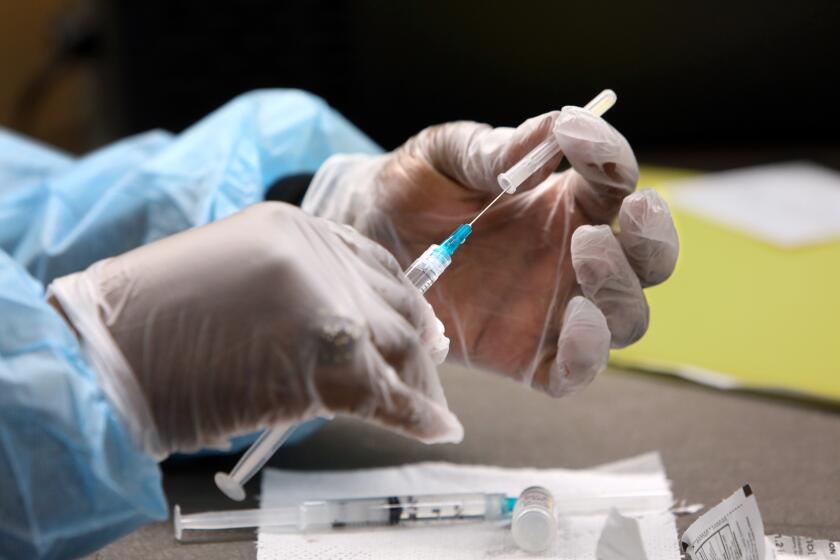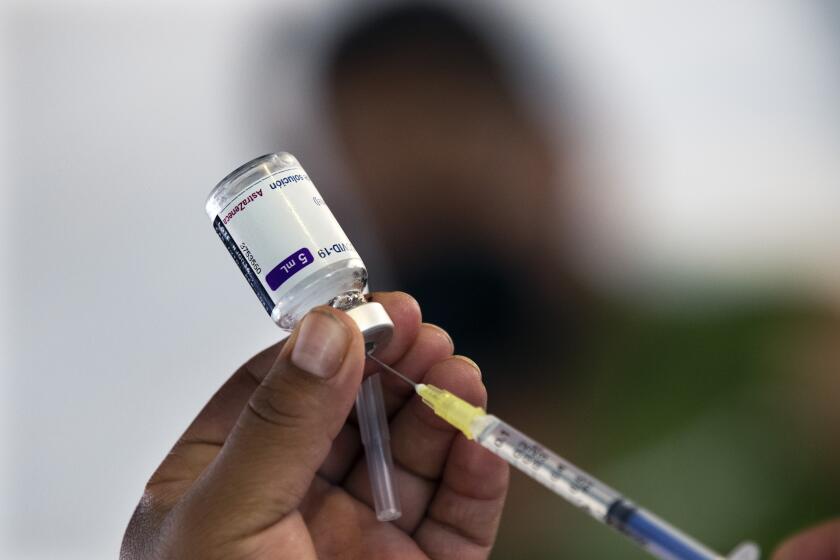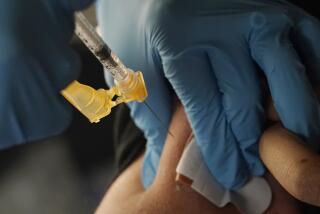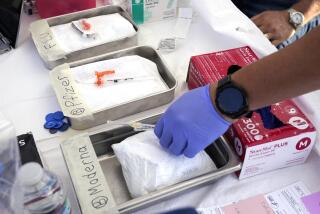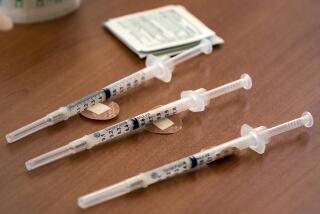Pfizer to seek OK for a booster dose of its COVID-19 vaccine
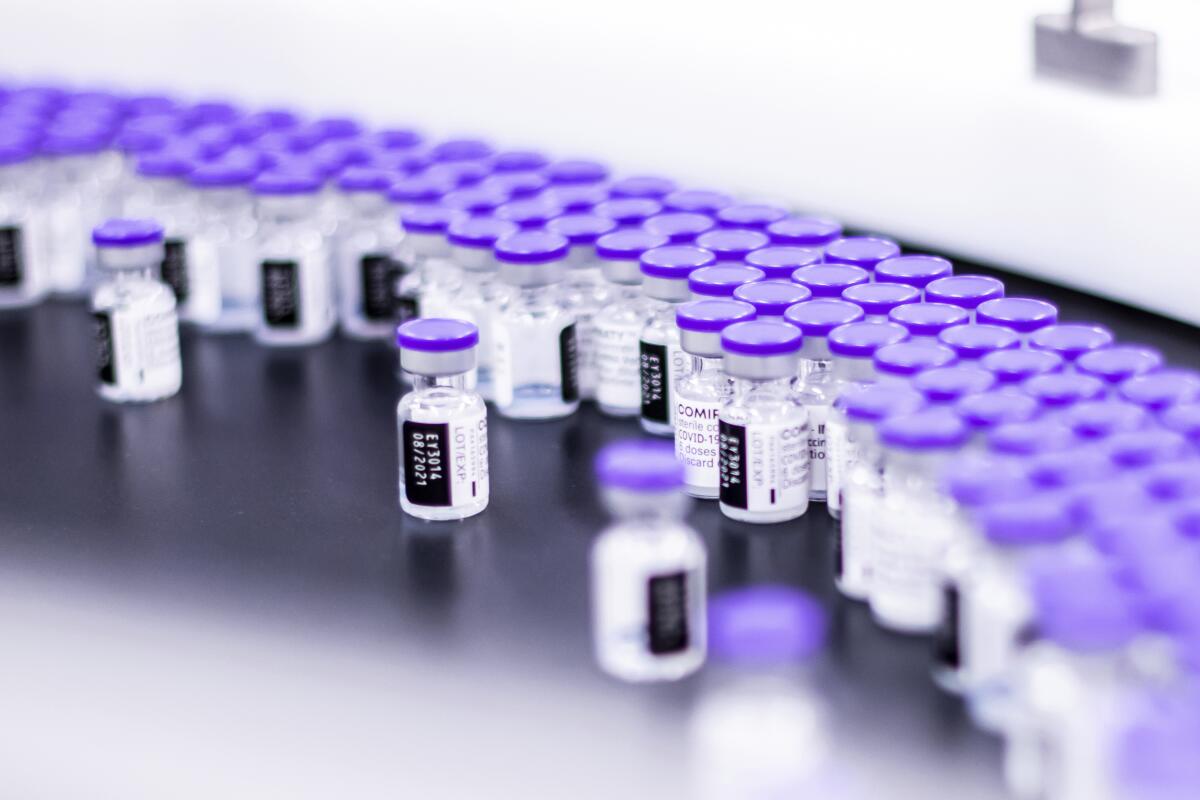
- Share via
Pfizer is planning to seek U.S. authorization for a third dose of its COVID-19 vaccine, saying Thursday that another shot within 12 months could dramatically boost immunity and maybe help ward off the highly contagious Delta coronavirus variant.
Research from multiple countries shows that the Pfizer-BioNtech shot and other widely used COVID-19 vaccines already offer strong protection against the Delta variant, which is spreading rapidly around the world and now accounts for the majority of new U.S. infections.
With most COVID-19 vaccines, two doses are critical to develop high levels of virus-fighting antibodies. Most of the world still is desperate to get those initial protective doses as the pandemic continues to rage.
But antibodies naturally wane over time, so studies also are underway to tell if and when boosters might be needed.
If scientists discover that immunity to the coronavirus starts to wane months or years after vaccination, a booster shot could be deployed.
On Thursday, Dr. Mikael Dolsten, Pfizer’s chief scientific officer, said that early data from the company’s booster study suggests people’s antibody levels jump five- to tenfold after a third dose, compared with their second dose months earlier.
The company plans to ask the Food and Drug Administration for emergency authorization of a third dose in August, he said.
Why might that matter for fighting the Delta variant?
Dolsten pointed to data from Britain and Israel showing the Pfizer vaccine “neutralizes the Delta variant very well.” The assumption, he said, is that when antibody levels drop low enough, the virus could cause a mild infection before the immune system kicks back in.
New research adds to evidence that widely used COVID-19 vaccines offer strong protection against the Delta variant that is now on the rise in the U.S.
But Dr. William Schaffner, a vaccine expert at Vanderbilt University Medical Center, cautioned that FDA authorization would be just a first step.
Emergency use authorization wouldn’t automatically mean Americans would be offered boosters, Schaffner said. Public health authorities would have to decide if they’re really needed, especially since millions of people have no protection.
“The vaccines were designed to keep us out of the hospital,” he said. Giving another dose would be “a huge effort while we are at the moment striving to get people the first dose.”
Associated Press writer Mike Stobbe contributed to this report.
